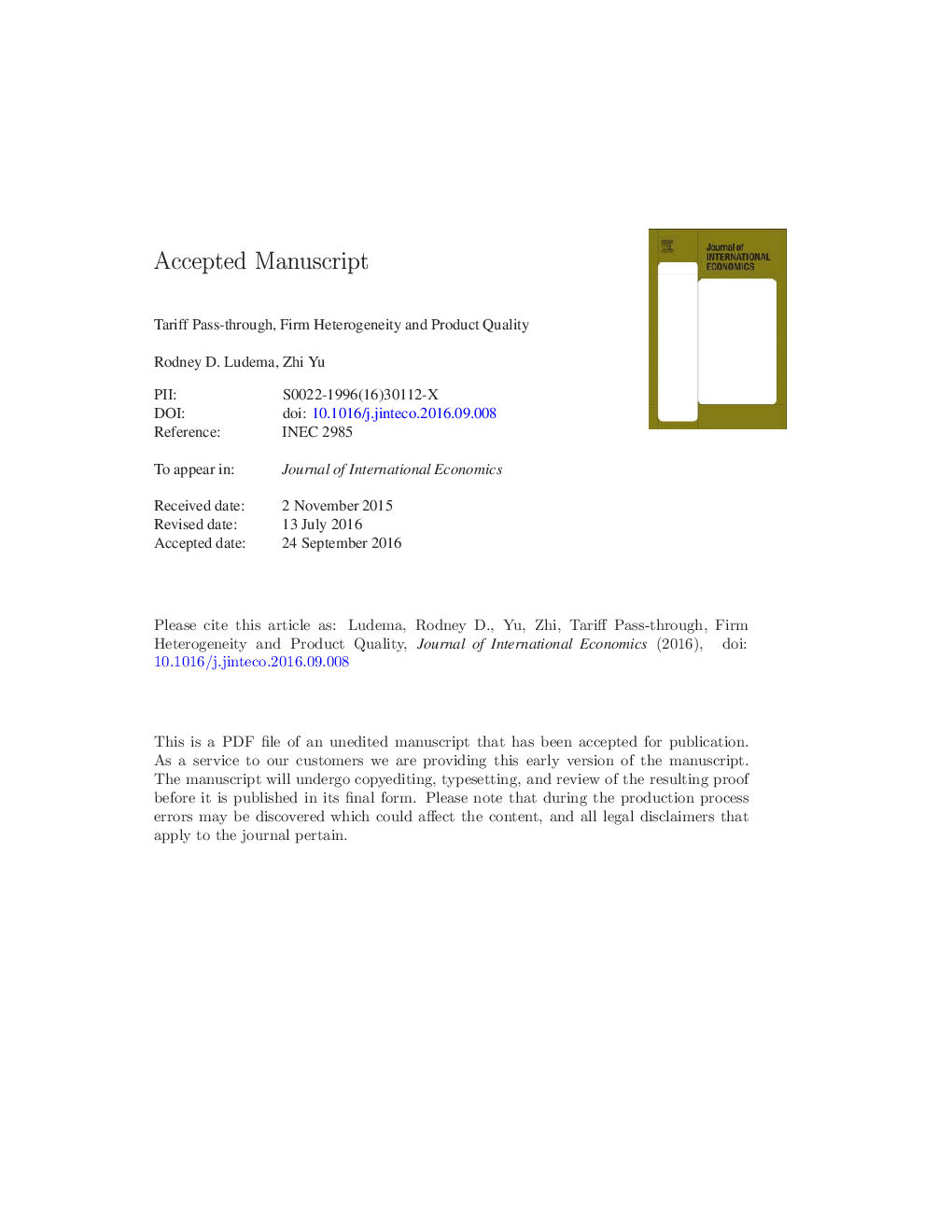| Article ID | Journal | Published Year | Pages | File Type |
|---|---|---|---|---|
| 5100974 | Journal of International Economics | 2016 | 44 Pages |
Abstract
The pass-through of tariffs to prices has critical implications for trade policy, but studies at the industry level mask potentially important firm-level heterogeneity in pass-through behavior. This paper investigates the response of U.S. export prices to changes in foreign tariffs at the firm level, accounting for firm productivity and endogenous product quality. In our model, exporting firms respond to foreign tariff reductions by upgrading product quality and increasing prices, resulting in incomplete tariff pass-through and in some cases a “quasi-Metzler paradox” (quality-unadjusted, tariff-inclusive prices increase). The upgrading response is greater for high productivity firms; however, the greater a product's scope for quality differentiation, the greater is the tendency for high productivity firms to have higher initial prices due to higher initial quality, resulting in a smaller tariff absorption elasticity (log increase in the tariff-exclusive price). Using U.S. transaction-level export data, plant-level manufacturing data, and multiple measures of scope for quality differentiation, we confirm several predictions of the theory, including an average firm-level quasi-Metzler paradox, an inverse relationship between the tariff absorption elasticity and firm productivity for products with high quality scope, and the reverse for products with low quality scope.
Related Topics
Social Sciences and Humanities
Economics, Econometrics and Finance
Economics and Econometrics
Authors
Rodney D. Ludema, Zhi Yu,
